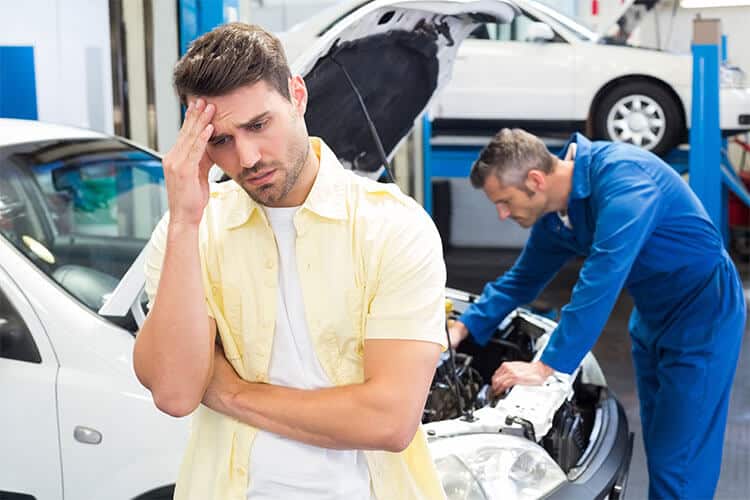
The average amount of property damage caused in each crash in the US is about $6,100. Considering Texas alone had 427,008 crashes in 2023, you can image the massive impact that property damage has on our lives (and wallets) annually. Thus, we wrote this auto repair guide to help you navigate property damage after a collision.
Facing these costs, especially while dealing with the pain, medical treatments, missed work, and other stresses that come with serious accidents, is daunting. It can feel like there are too many huge decisions to make in too short a time. Hopefully our auto repair guide will help answer some of your questions.
There are some key points after an accident at which you have the opportunity and power to make decisions around your auto repairs. Once you have determined your choices for these important decisions, the service providers you have selected can guide you through the right process. And as always, Thompson Law is here to help you have the best outcome possible after your accident, and be your auto repair guide.
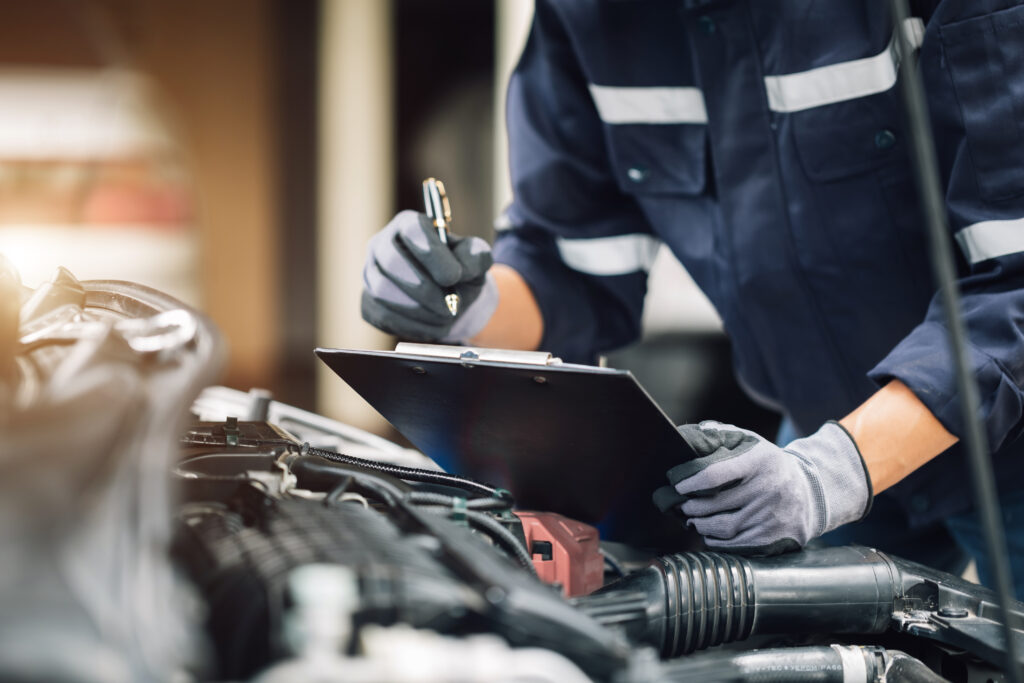
The first decision to be made is if you want to go through your insurance or the at-fault party’s insurance for your repairs. You only have this option if you are not at fault for the accident. If you are at-fault for an accident, filing through your own insurance is the only option.
Additionally, this consideration is only helpful if the at-fault party has adequate insurance. If they are uninsured motorist or under-insured motorist, you may need to file through your own insurance in order to recoup an amount that covers the value of your losses.
It seems counter-intuitive to file against your own insurance when you did not cause the accident, especially if the at-fault party does have adequate coverage. However, even at the minimum level of auto insurance coverage by Texas law standards ($25,000 minimum for property damage) does not cover the full value of many vehicles on the road today. It is worth considering the benefit of receiving a higher payout through your own insurer, even if it potentially means higher future premiums for you.
We have written a few articles over the years about the trickster tactics employed by insurance adjusters in injury claims (like this one dealing with Progressive, or this one dealing with GEICO, … or even this one dealing with Allstate). It likely comes as no surprise that the insurance companies will not act as your helpful auto repair guide, and are also prepared to cut corners in their customers’ cases of property damage.
Insurance companies are businesses, and like any business, their primary goal is to manage costs and maximize profits. One way they achieve this is by limiting the information they provide to policyholders about available benefits, especially after an accident. While your policy may cover various aspects of vehicle repair or replacement, insurers often rely on you to initiate inquiries and actively pursue these benefits. Don’t let the insurance company try to be your auto repair guide; consider the car repair options below.
If the repair costs to the car exceed the estimated value of the vehicle, it will likely be declared a “Total Loss.” In the case of a Total Loss, you have the choice to keep your car or take the settlement when totaled. This decision will of course affect the settlement amount you are offered, so it is important to consider the financial impact for the short and long term.
The at-fault driver’s insurance company or your own insurer (depending on your policy) will typically offer a settlement based on the car’s fair market value before the accident. It is important to review the offer carefully and ensure it reflects your vehicle’s condition, mileage, and any added features.
Some individuals choose to keep their totaled car by accepting a reduced payout and buying the vehicle back from the insurance company. This can be a viable option if you intend to salvage parts or repair the car at your own expense.
When filing an insurance claim after a wreck, presenting a comprehensive record of your vehicle’s value enhancements can potentially increase the payout you receive. Many vehicle owners invest in upgrades, aftermarket add-ons, or premium packages that may boost the car’s overall value.
Here are some key strategies to ensure these investments are properly accounted for during the claims process:
A diminished value claim is a request for compensation to address the loss in market value of a vehicle after it has been involved in an accident, even if repairs have been completed. Several factors influence the value of a diminished value claim in Texas. These include:
Seek a professional appraisal of your vehicle’s diminished value from a qualified expert can help provide an accurate assessment of the loss.
A Loss of Use claim seeks compensation for the inconvenience and inability to use your vehicle due to damage caused by another party.
If your vehicle is repairable after an accident, you may be eligible to claim Loss of Use damages under several circumstances. These include:
For “total loss” vehicles, loss of use damages are determined based on the time reasonably needed to replace the vehicle. In 2016, the J&D Towing v. American Alternative Insurance Corp. (2016) case established that victims of a total loss can recover damages for loss of use during the reasonable replacement period. This includes costs for alternative transportation like rentals or public transit, considering factors such as vehicle availability, financing, and the victim’s efforts to secure a replacement.

Insurance providers typically have repair shop networks that they prefer you to select, such as Caliber Collision and Crash Champions (formerly Service King). There can be a benefit in moving forward with these preferred shops, as the relationship shared by the shop and the insurer can expedite the process of communicating and handling your property damage claim.
Many people are understandably skeptical of these network providers, and worry the relationship is benefiting the insurer and shop more than their needs as the customer. This is a very understandable instinct, and one thing you can do to ensure you are getting a fair analysis of the damage and good service at the shop is to vet the businesses you are considering. Using review forums like Google, Yelp, Angi, Autobody Review, and more can provide you with valuable information from previous customers.
In addition to checking these sites for reviews of good workmanship, fair pricing, honest practices, and good customer service, ask your real life network of friends and family for their experiences and recommendations. It never hurts to gather more information for local auto repairs so you can make an informed choice for your car, truck, motorcycle or other vehicle repair!
Finally, don’t forget to take your own needs into consideration. The most important thing a repair shop can do is provide good, fairly-priced work, and serve as your auto repair guide throughout the process. But, do not undervalue considerations like the shop’s distance from your home or work. Choosing a convenient location, if you have the option, can make a huge impact on the amount of time and level of inconvenience that comes with having your source of transportation out of commission.
Property damage claims can be tricky and take more time and patience than seems reasonable. If you have reached a point where you feel you can’t make a decision or don’t know how best to move forward, Thompson Law is here for you. Our injury lawyers really have seen it all when it comes to motor vehicle accidents and property damage. They can certainly provide recommendations and guidance on the options you have and the considerations to make. Please contact us for the help you need after your serious accident.
Thompson Law is a personal injury law firm, so the focus of our practice is securing justice and fighting for deserved compensation in cases of bodily injury through error or negligence. However, our work frequently intersects with property damage situations, including cases like car accidents, truck wrecks, boating accidents, and more.
Our experienced team is able to be your auto repair guide in assisting with vehicular property damage questions if you are the victim of an injury accident. We can help you to understand the scope of coverage an insurance policy offers and advise you of the route to take on the big decisions discussed above.
What our auto repair guides can’t do is negotiate a property damage claim on your behalf. At Thompson Law, we want you to have the absolute best outcome possible. We are here to help you through your healing and recovery and fight for the compensation you deserve.
It is in your best interest to take ownership of the property damage claim, so that you receive the highest settlement possible without any legal fees – just free, friendly auto repair guidance while we handle your injury claim process. Or if you have a knack for fixing cars, you can look at free auto repair manuals online.
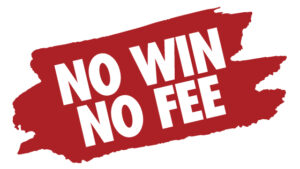
If you found this auto repair guide helpful, you may also like:
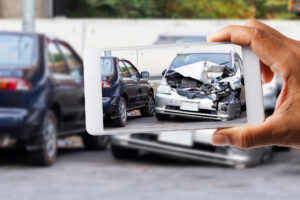
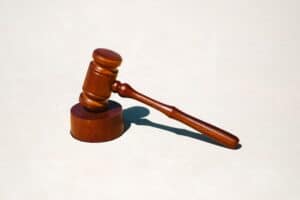




Thompson Law charges NO FEES unless we obtain a settlement for your case. We have put over $1.9 billion in cash settlements into our clients’ pockets.
Contact us today for a free, no obligation consultation to discuss your accident, get answers to your questions, and understand your legal options. State law limits the time you have to file a claim after an injury accident, so call today.